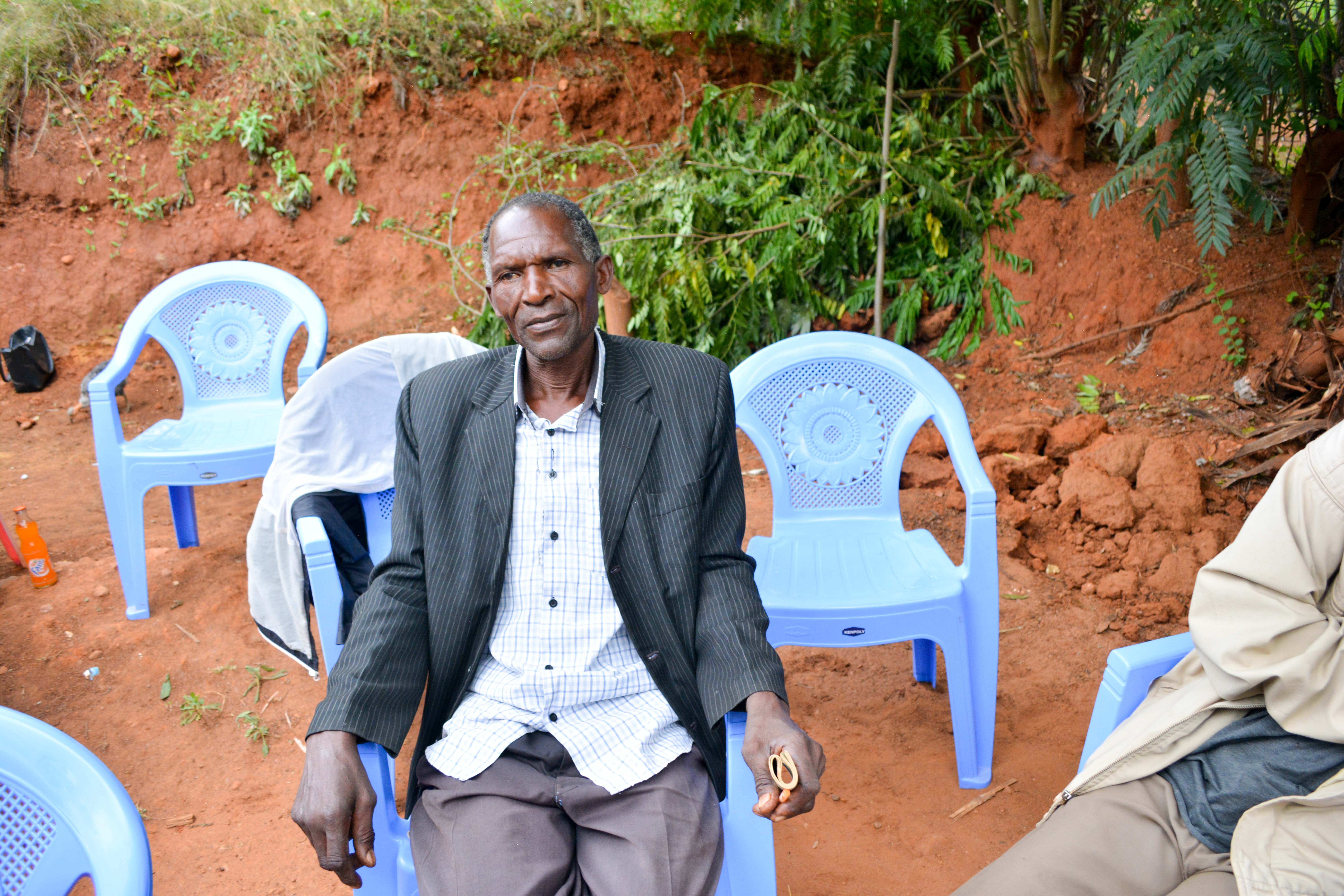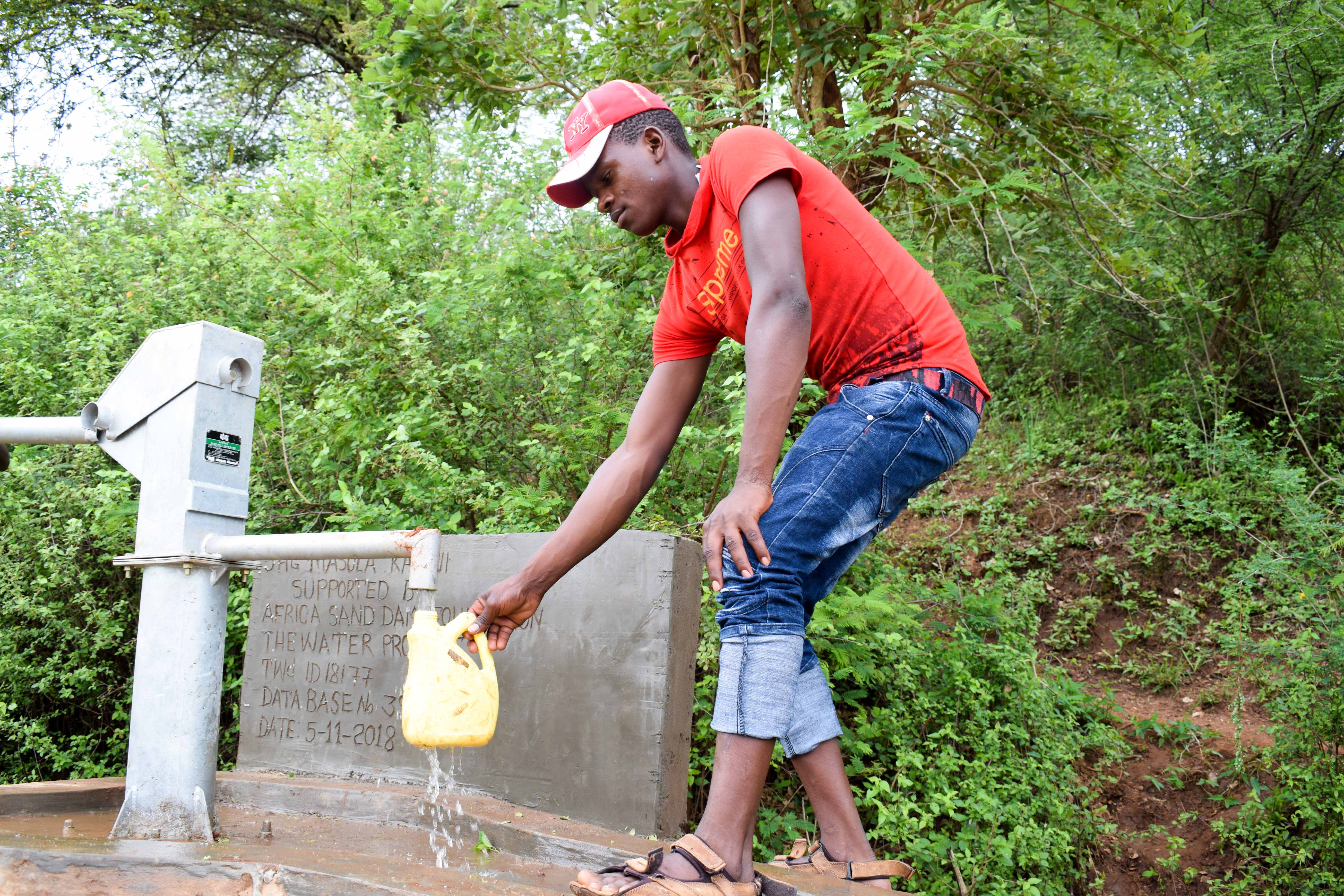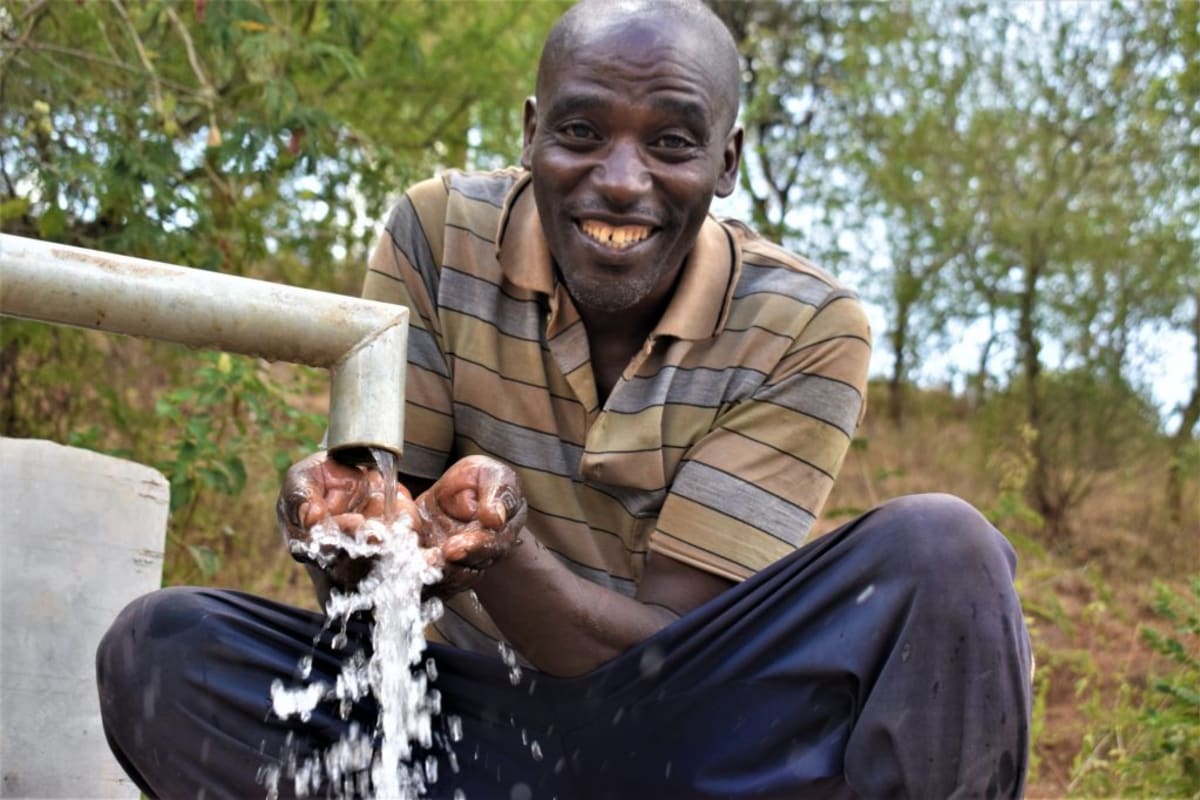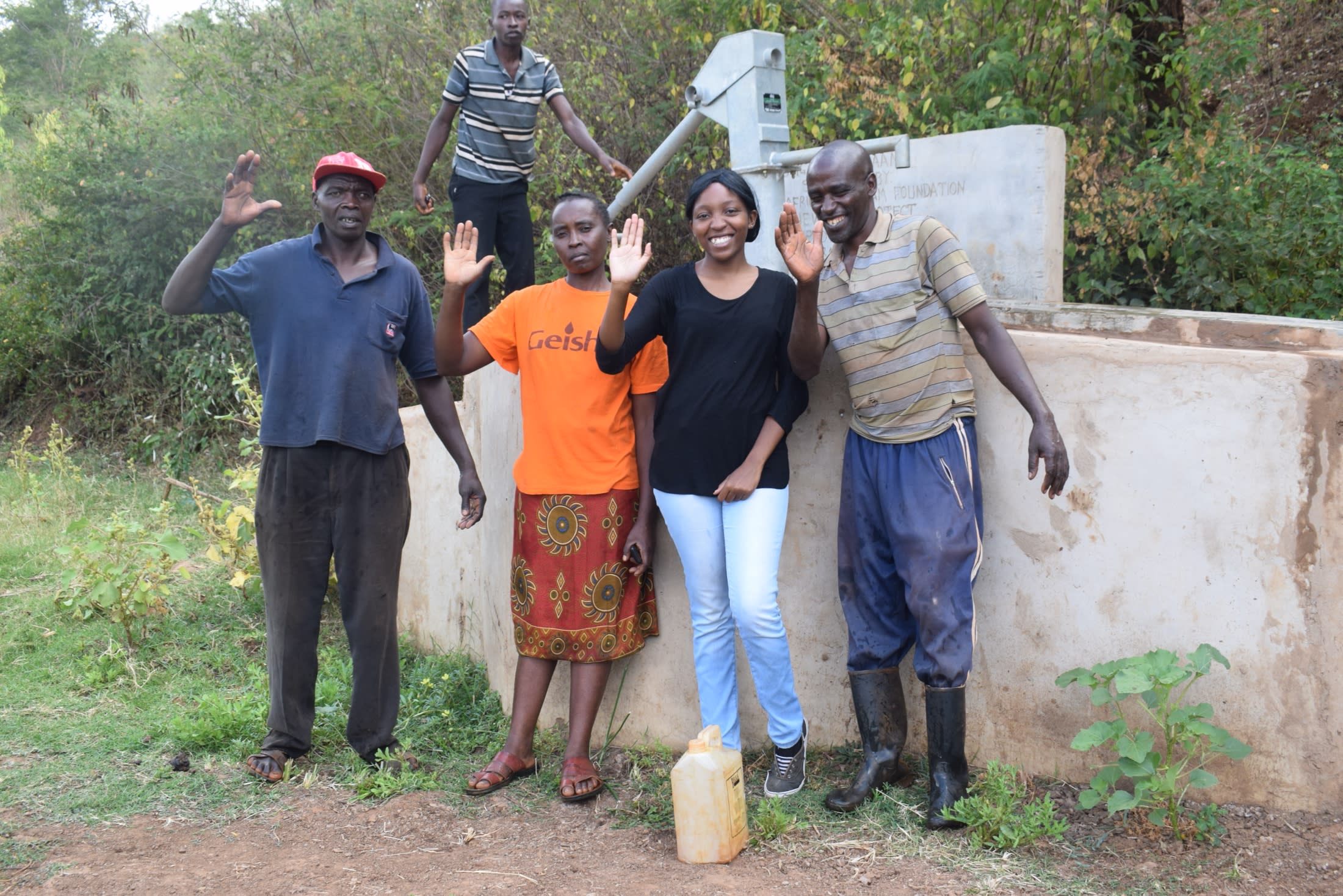The roads leading to Masola Community require a bumpy ride up and down hills. Once there, it’s a much more peaceful environment. Homes are spread out over a large area, most of which are made of stone walls and iron roofs. Most of the families living here practice farming and raise livestock.
The majority of people share a common faith, Christianity, and come together often to meet. They’re also united in the formation of the Masola Kaani Self-Help Group (Masola Kaani because group members are from either Masola or Kaani Village), which has the purpose of alleviating water and food scarcity in the greater region.
We’ve been partnered with this group for the last two years and have seen the successful installation of two sand dams and two hand-dug wells. Each water project has brought clean water closer to hundreds of people.
Check out all of the success they've already had in Kaani Community!
Water
Women and children wake up at 6am every morning to fetch water to be used for drinking, cooking, and cleaning. If one of the two hand-dug wells is too busy, they’ll continue walking to the next one. These water sources provide clean water to community members, and they consider it a very important asset.
They aim to continue adding these clean water points until they have enough for the hundreds upon hundreds of people living in their greater region.
“Our area experiences long dry periods across the year, leading to rampant water shortages. By working on water projects we hope to improve our living conditions and prevent diseases associated with dirty water,” farmer Kasyoki Kalii told us.
There are so many people relying on the two wells, that people sometimes have to resort to their old polluted sources. As a result, waterborne disease is still experienced by the self-help group members and their neighbors.
Sanitation
We had the privilege of visiting the Mumbua household to talk about how health, water, and sanitation have played a part in their lives and the lives of their neighbors over the last year.
Thanks to continuous training since the start of our relationship with Masola Kaani Self-Help Group, this area has 100 percent latrine coverage.
However, there are other things we taught about during training that still haven’t been adopted into the households. For example, we need to see a lot more dish racks, bathing shelters, animal pens, and garbage pits.
What we plan to do about it:
Training
We’re going to continue training Masola Community on hygiene and sanitation practices. Though our visits to households were encouraging, we want to ensure that community members are practicing the day to day habits we’re not able to observe. Food hygiene, water hygiene and treatment, personal hygiene and hand-washing will all be a focus during our next review.
Hand-Dug Well
This particular hand-dug well is being built adjacent to this group’s ongoing sand dam project (click here to see), which will supply clean drinking water once it rains. We have supplied the group with the tools needed for excavation. With the guidance of our artisans and mechanics, the excavated well will be cased, sealed with a well pad, and then finished with a new AfriDev pump.
Excavation takes a month or more on average, depending on the nature of the rock beneath. Construction of the well lining and installation of the pump takes 12 days maximum. The well will be lined with a concrete wall including perforations so that once it rains, water will filter in from the sand dam.
This well will be located in Masola Village, and will bring clean water closer to families having to walk long distances for their water.
This project is a part of our shared program with Africa Sand Dam Foundation. Our team is pleased to provide the reports for this project (edited for readability) thanks to the hard work of our friends in Kenya.

 Protected Dug Well
Protected Dug Well
 Rehabilitation Project
Rehabilitation Project































